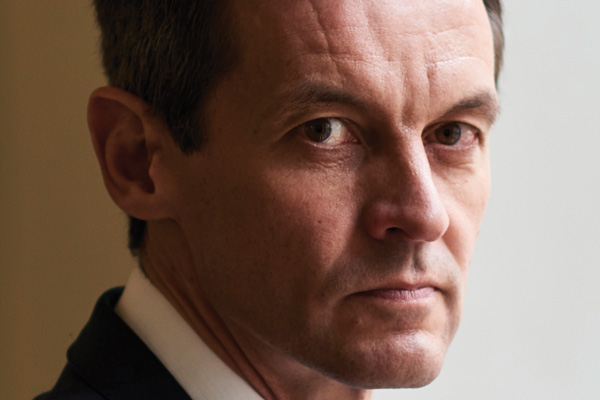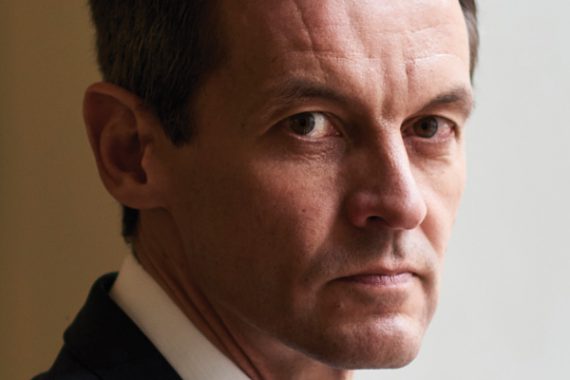
01 richard vautrey power50 2017 1
After a decade as the power behind the throne, the GPC chair says he is now the man to deliver change. Pulse’s photographer is asking Dr Vautrey to look happy. ‘There aren’t a lot of happy GP stories right now,’ Dr Vautrey replies, deadpan.
And this is a truth Dr Vautrey knows all too well. The new GPC chair, a member of the GPC since 2004 and deputy chair since 2012, is an accomplished media performer, regularly appearing on national TV and radio to explain the troubles in general practice.
He has a grasp of policy detail that no one else on the BMA’s GP Committee can match. For every subject Pulse throws at him – indemnity, the future of the QOF, the Carr-Hill formula – he has an informed answer. His 20-year experience as a medical politician means he is the definitive ‘safe pair of hands’.
However, as Pulse meets him for the first time since his election as GPC chair, he shows he can also be somewhat frustrating as an interviewee. He gives few indications of what his leadership will mean for grassroots GPs beyond the usual acknowledgements that ‘general practice is in crisis’ and statements about the decade of underinvestment.
Dr Vautrey won as the status quo candidate – perhaps surprisingly given the trend of recent world events such as Brexit and the US election. And while general practice could benefit from the stability the new chair can offer, some within the GPC are arguing for a bolder approach, with mumblings that he is ‘more of the same’.
But Dr Vautrey rejects the idea that he may not be the man to deliver the turnaround the profession needs. ‘We have brought about real changes: the scrapping of the avoiding unplanned admissions DES and CQC fees; making positive changes to sickness pay.’
But with increasing workload, recruitment issues, indemnity cost hikes and practices closing, is he willing to change course? ‘We need to step up the pace significantly,’ he firmly replies.
He has shown boldness in his first months at the helm, writing to all GPs to ask whether they would be willing to close their patient lists en masse, following a call from local leaders at the LMCs Conference this year.
But with characteristic caution he warns that, even if the survey of GPs shows support for action in principle, the profession must be ready to act. ‘What we don’t want is the situation we saw with the pensions dispute: large numbers of people said they were prepared to take action but when we pressed the button they didn’t.’ He knows this from personal experience, as he was unable to persuade even his own practice to take part.
Over the next few months Dr Vautrey will be stamping his authority on the profession, preparing a rebooted version of the BMA’s Urgent prescription for general practice– which included capping the number of consultations GPs will do in a day and the use of ‘primary care hubs’ for overflows of patients.
Ultimately, Dr Vautrey will be judged on whether such measures are implemented and how effective they are. As superheroes are often told: ‘With great power comes great responsibility.’
The new GPC chair on…
Potential industrial action
‘Whatever the ballot result, the Government and NHS England can’t ignore the fact that GPs around the UK, and in England particularly, are saying something’s got to give’
The QOF
‘The LMCs Conference wanted a retained but reformed QOF, and set the mandate for the GPC. But it’s a negotiation; we will wait and see what the results are’
Indemnity
‘There is a real risk that medical defence organisations will be forced to put up their rates to a level that will make it untenable for many GPs to work. If they do that, it will mean a winter crisis like no winter crisis we’ve had before’
Affecting change
‘We need to see a change of philosophy at government level so it genuinely invests properly in general practice’
Related articles
BMA will push for QOF to be ‘retained but reformed’, says new GPC chair
Dr Richard Vautrey: ‘We’ll pursue mass list closures if that is what GPs call for’
back to power50 2017 banner 580x92px
Pulse October survey
Take our July 2025 survey to potentially win £1.000 worth of tokens















